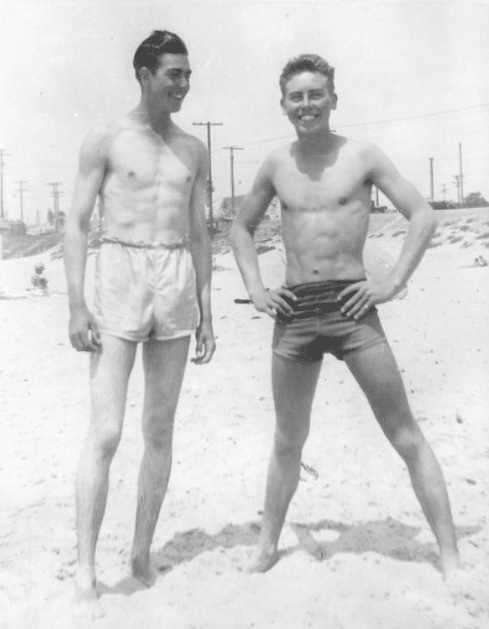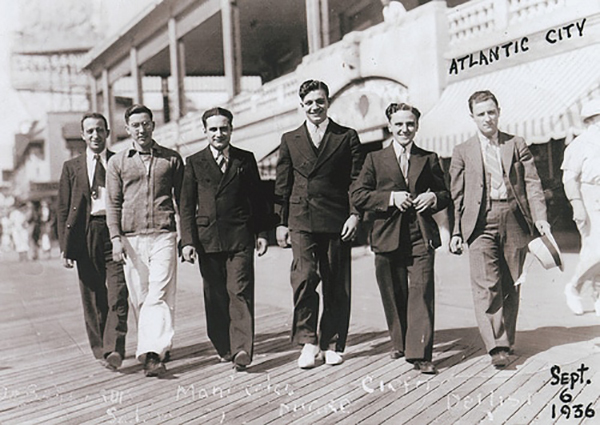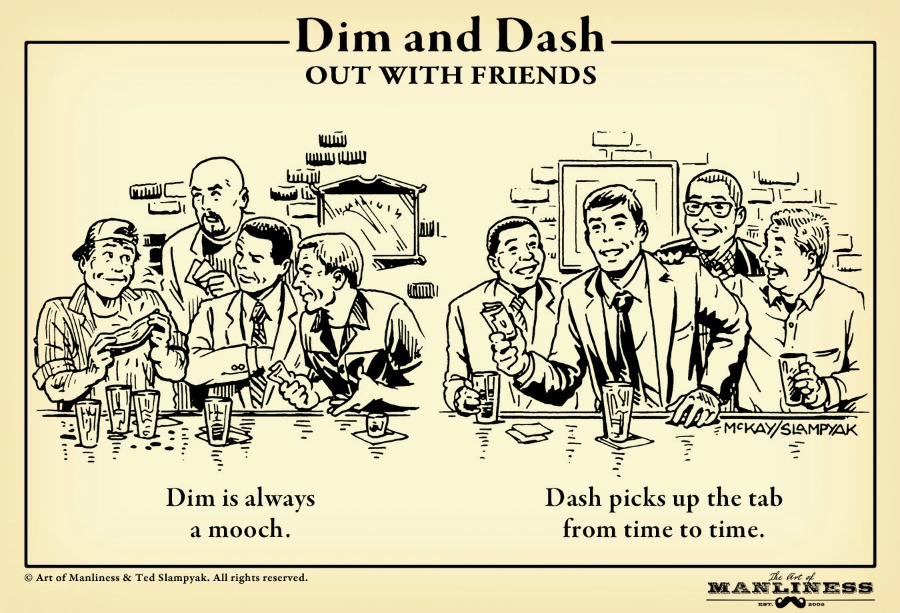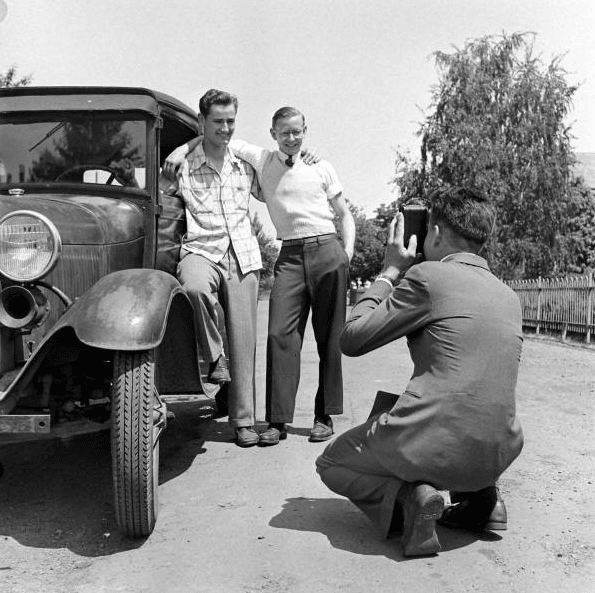Editor’s Note: This is an excerpt from Arthur Murray’s Popularity Book, originally published in 1944. This particular article was written by Gelett Burgess, a well-known artist, critic, author, and humorist.
While Burgess’ advice is a little cheeky and blunt, and may come off as overly utilitarian, the main, underlying message is quite dead on. A lot of guys miss out on making and keeping friends, because they’re always looking for a soul mate best buddy, and won’t bother trying to get to know anyone who they don’t have everything in common with. Those kinds of bosom buddies do come along once in a blue moon, but most of the time you’ll end up befriending imperfect people, who don’t live up to your expectations in any number of ways. Yet, you can still enjoy different people for different reasons at different times. Burgess explains how.
When I was young I was romantic. I believed in Santa Claus; I believed that all women were angels. And I believed in friends. But after years of discontent with Toms who bored me and Dicks who lied to me and Harrys who double-crossed me, not to speak of Janes who talked me to death, I was almost ready to exclaim with Job, “Have pity on me, O ye my friends!”
What was the trouble? Why is that we’re so often dissatisfied with our friends? Why are we shocked, disappointed, or angry at their actions? Is it true, as Ralph Waldo Emerson said, “Friends such as we desire are dreams and fables.” Not at all. I found out, in time, that the fault wasn’t with Tom, Dick, and Harry but with myself. For friendship is one of the most difficult games in the world.
It has to be understood and practiced as scientifically as chemistry, parachute jumping, or painting.
The secret lies in what I might call Vocational Friendship. The vocational expert, you know, is a person who goes to a big store or factory and examines all applicants for jobs, mentally and physically, to determine what each one is best suited for. Then he assigns them to the departments where they’ll be most efficient. Sometimes a failure as bookkeeper will be a great success at washing windows; and a man who couldn’t possibly run a machine will handle splendidly a whole herd of stenographers. So that’s exactly what you must do to your friends to make them most worthwhile and permanent – understand and classify them and not attempt to make square pegs fit into round holes.
Now Arthur, for instance, is a witty and amusing talker. But he never keeps his appointments. So just enjoy his talk when you meet him, but don’t make any appointments with him; then he’ll always please you. Why curse Gertrude – who plays auction bridge like an Ely Culbertson just because she dresses like a frump? Have her for a partner when you play, but don’t take her to a night club. Then you’ll always be friends. For the purpose of display you can escort Elsie who is pretty – but dumb.
I had a cousin who exasperated me for years because she would never answer my letters or even acknowledge the receipt of gifts I sent her. But she has lovely table manners and can eat asparagus, oranges, frog’s legs, or even corn on the cob so that you are hardly aware of it. Well, what did I do? I gave up writing to her but whenever she was in town I took her out to dinner. We have been great friends.
You see, it is impossible to change people and make them what you like. But if you enjoy each one in the special way in which each excels you’ll never be disappointed or irritated. The trouble is that most of us expect each of our friends to be like those many-bladed knives that boys love, knives that can cut, bore holes, drive screws, open cans, and do almost anything. We expect friends to please us in everything.
But friends are like simpler tools. Each one can do something well, and we should use each one only for that. We can’t complain, “You naughty screw driver! Why can’t you drive nails?” so why should we expect a woman who can write wonderful poems to tell funny stories or do the Rumba? Can’t a man play a marvelous game of golf and yet be careless about his debts?
Vocational friendship would teach you to use him only for golf and never lend him money.
The art of Vocational Friendship, you see, is to keep your contact with friends only to those points where you’re mutually sympathetic. With some friends you may find many pleasant points of contact, with some only a few. But almost every person you meet has at least one quality that you can enjoy. That is the way I think that we should look at our friends. Focus on the quality you like best.
Anyway, I have found that in this way I could be friends with almost everybody. Not expecting more than one specialty of each, I was never disappointed in my friends.
Tags: Friendship







